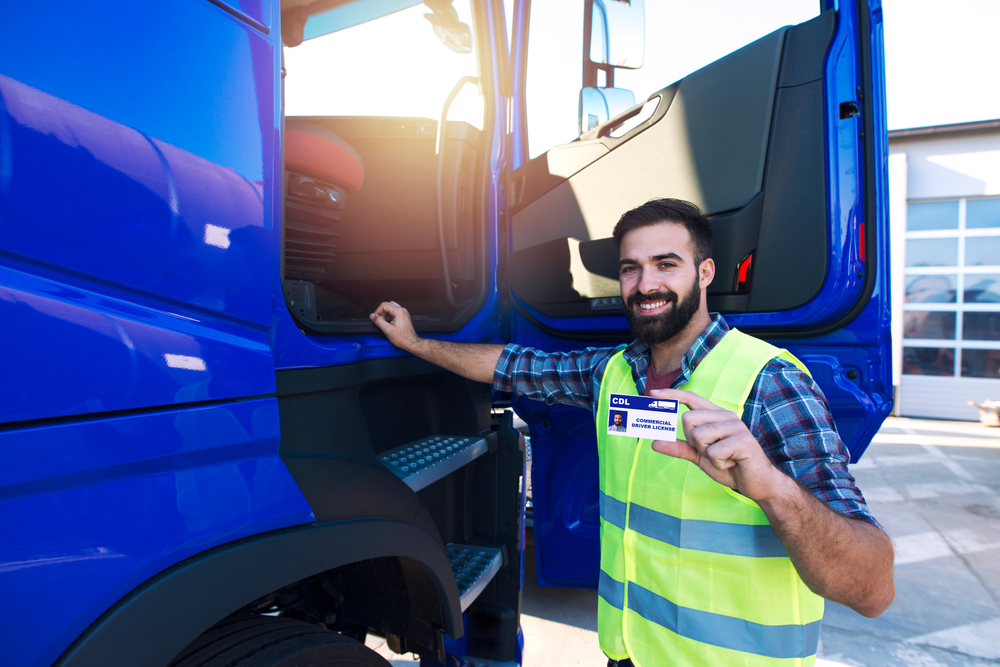Commercial Driver’s License (CDL) training is the essential first step for anyone aspiring to join the trucking industry. With increasing demand for truck drivers and competitive salaries, obtaining a CDL can be a life-changing career move. This guide dives deep into everything you need to know, from the costs and benefits of training to tips on choosing the right program.

Why CDL Training Might Be Cheaper Than You Think
The cost of CDL training can be intimidating at first glance, but it might be more affordable than you think. Many options exist to reduce the financial burden. For instance, employer-sponsored programs such as Schneider's paid CDL training allow you to earn while you train. These programs often cover tuition in exchange for a commitment to work for the company after certification.
State and federal incentives also provide significant financial support. Programs like the Ohio CDL Training Program offer grants or subsidized tuition to qualifying candidates. Additionally, some training schools offer flexible payment plans, making the process manageable.
It’s important to explore all options to ensure you choose a path that fits your financial situation. By taking advantage of these resources, CDL training can become a more accessible and affordable goal.
The Average Price of CDL Training in Columbus
In Columbus, CDL training costs range from $3,000 to $10,000. The total cost depends on factors like the type of training, program length, and school reputation. Programs at private institutions are generally on the higher end, while community colleges and government-sponsored schools offer more economical options.
For example, Stevens Transport CDL Training in Dallas provides a comprehensive training experience at a competitive rate. These programs typically include classroom instruction, hands-on driving practice, and preparation for the CDL exam.
Understanding the breakdown of costs—such as tuition, fees for tests, and any additional expenses for endorsements—is crucial. For a detailed explanation of typical CDL training costs, refer to this resource: How much does it cost to get a CDL?.
The Smartest Ways to Obtain a CDL
There are several smart approaches to obtaining your CDL, each suited to different budgets and circumstances:
- Employer-Sponsored Training: Programs like those offered by Keller Trucking allow you to train with little to no upfront cost, as long as you commit to working with the employer afterward.
- Community Colleges: These often offer affordable training programs with flexible scheduling options.
- State Incentives: Government programs, like the Ohio CDL Training Program, help reduce costs for eligible candidates.
- Private Schools: Accredited private schools provide high-quality training, often with additional perks like job placement assistance. However, they are generally more expensive.
For more ideas, this discussion on the cheapest and smartest ways to obtain a CDL offers helpful perspectives.
What to Expect During CDL Training
CDL training programs are designed to prepare you for both the written and practical exams. Here’s what you’ll typically experience:
- Classroom Instruction: Covers safety regulations, vehicle maintenance, and federal trucking laws.
- Hands-On Practice: Provides behind-the-wheel training, including vehicle inspections, parking, and maneuvering.
- Road Testing: Ensures you’re ready to handle real-world driving scenarios with confidence.
A great resource to learn more about training school structures is About CDL Driver Training Schools. This guide outlines what to look for in a program and common challenges faced by trainees.
The Average Salary of a Commercial Truck Driver
A CDL opens the door to a lucrative career. The average annual salary for commercial truck drivers ranges between $45,000 and $80,000. Entry-level drivers often start on the lower end, but with experience and endorsements, earnings can grow significantly.
Drivers with specialized skills, such as those hauling hazardous materials, typically command higher pay. Additionally, many employers offer benefits like health insurance, retirement plans, and performance bonuses. For those entering the industry through paid training programs, like Schneider's paid CDL training, job placement is often guaranteed, making it easier to start earning immediately after certification.
Choosing the Right CDL Training Program
Finding the right CDL training program involves considering several key factors:
- Accreditation: Ensure the school is recognized by the Training Provider Registry and adheres to federal regulations.
- Cost: Compare tuition fees and additional expenses across multiple programs.
- Location: Choose a program near you to reduce commuting time and expenses.
- Job Placement Assistance: Opt for programs with strong ties to employers for better career prospects.
Conducting thorough research and reading reviews can help you make an informed decision.
Tips for Success in CDL Training
To make the most of your training experience, consider these tips:
- Stay Focused: Commit to mastering both theoretical and practical aspects of the course.
- Leverage Resources: Use study guides, online forums, and peer networks to enhance your learning.
- Ask Questions: Don’t hesitate to seek clarification from instructors if you encounter challenges.
- Practice: Dedicate extra time to refining your driving skills, especially in areas you find difficult.
Programs like Keller Trucking’s training emphasize personalized support to ensure trainees succeed.
Conclusion
CDL training is an invaluable investment for those looking to build a career in trucking. With numerous affordable options, from employer-sponsored programs to government incentives, aspiring drivers have a range of paths to certification. By choosing the right program, staying committed, and leveraging available resources, you can achieve your goal of becoming a skilled and successful commercial truck driver. Start exploring your options today and take the first step toward a rewarding future on the open road.
